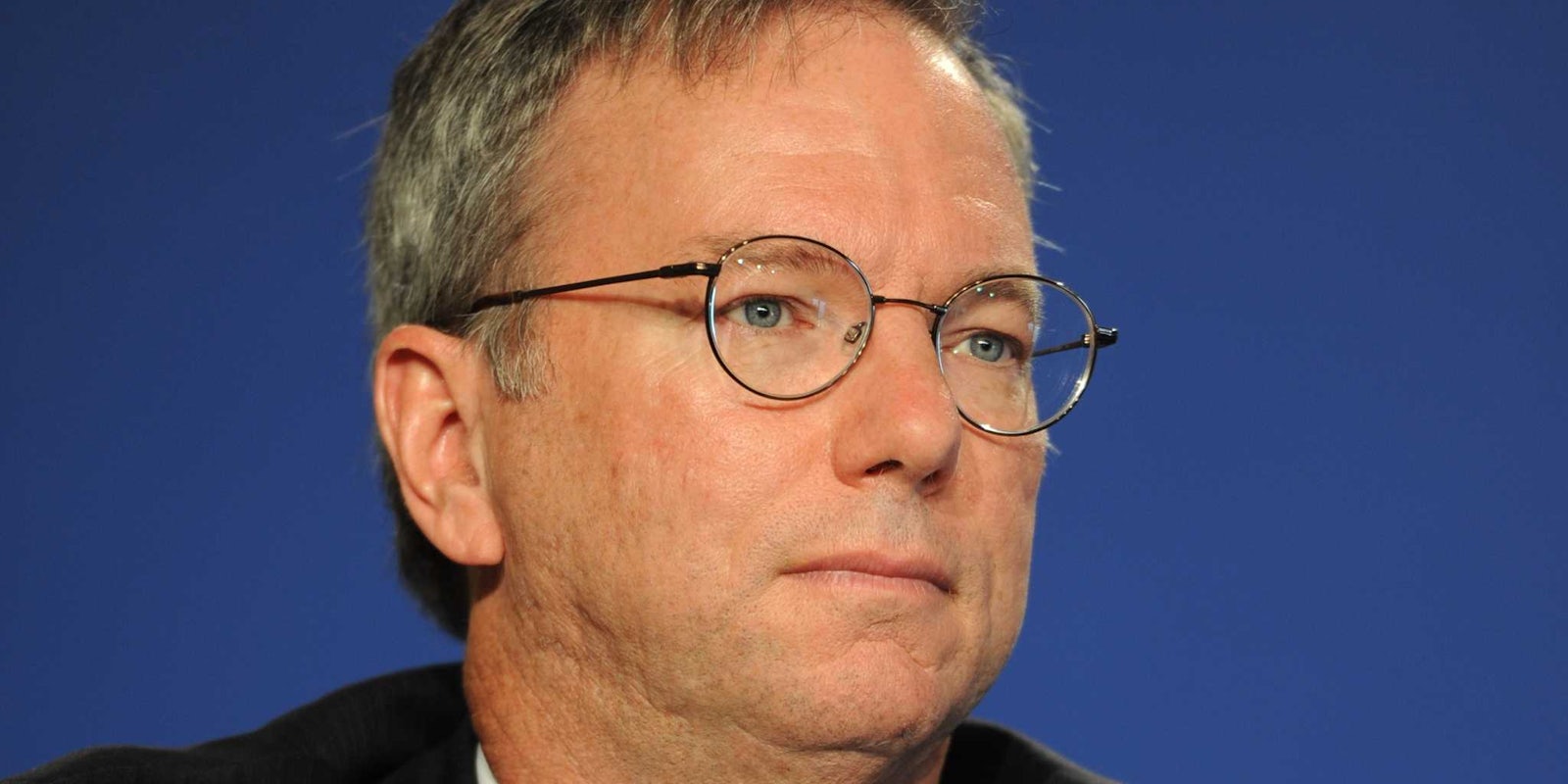Web giant Google was so troubled by revelations of National Security Agency spying last year that it immediately invested in a dramatic upgraded to its security infrastructure
?We’re pretty sure that the information inside of Google is now safe from everybody, including the U.S. government,” chairman Eric Schmidt said at Austin’s South By Southwest Interactive festival Friday.
In the speech, Schmidt outlined how the Internet has empowered individuals, even as it has also given governments an array of powerful new tools to monitor and control their subjects.
Schmidt said he was surprised to learn last summer of the NSA program that had breached Google’s security and gained information on its users. He framed the intrusion by the U.S. government as essentially no different than efforts by foreign governments to covertly access its data.
?We were attacked by the Chinese in 2010. We were attacked by the NSA in 2013,” he told panel moderator Wired writer Steven Levy.
Schmidt went on to slam the NSA’s other surveillance programs—particularly its cell phone metadata collection program.
?The NSA gathered over 300 million phone records to find information on 53 people. One of whom was maybe a terrorist,” Schmidt said. ?I’ll let you determine for yourself if you think this an appropriate response.”
But for Schmidt, there’s no bright line separating government and private actors. He recalled a 2011 meeting with Wikileaks publisher Julian Assange, a transcript that of course Assange later posted online. Schmidt told Levy that he found aspects of the Internet’s ability to allow leakers to release extremely large troves of documents en-masse troubling.
?I don’t think we want random people leaking large ammonites of random data,” Schmidt said.
?People can be hurt. There’s no way to tell if there’s something in a leak of a million documents that it could get someone killed.”
The culture leaker culture—and the people who cheer them on—might jsut exacerbate their potential negative consequences, Schmidt said.
?There’s a real concern about the nature of celebrity driving bulk leaking,” he said.
?These people become celebrities and that raises the concern about copycats who want do this to attain the same noteworthy as an Assange or a Snowden.”
Even so, Schmidt acknowledged the reason many leaks happen as a response to the ever-growing security state.
?There are many things in America that are secret but don’t really need to be,” he said. ?These things are only made secret in the first place because people don’t want to be embarrassed.”
Photo via Wikimedia Commons


